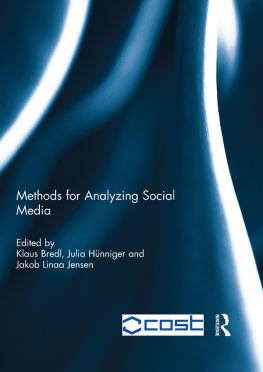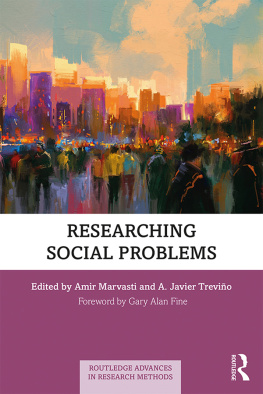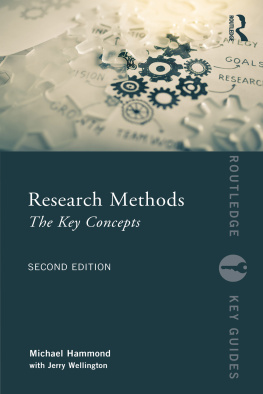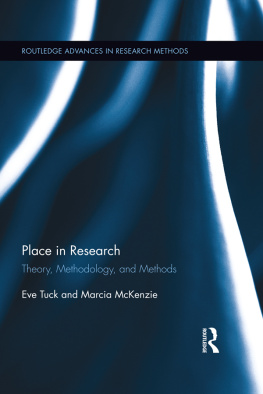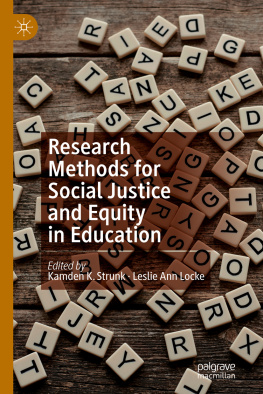
New Methods in Social Justice Research for the Twenty-First Century
This book provides a source of innovative theories and data for researchers grappling with social justice methodology and research methods in an environment constrained by funding agendas.
This work foregrounds and promotes creativity and imagination within a critical frame of reference to challenge the status quo. It invites people into creative spaces for thinking about and researching the social. With/in these spaces both the processes of social justice research (methodology) and the presentation of the research (re-presentation) are seen as being intertwined.
This collection explores methodologies which include, but are not limited to: writing as inquiry; performance ethnography; emotional geographies; arts-based inquiry; autoethnography; evocative inquiry; readers theatre. This may include poetry, monologues, art, music, dance, and other creative mediums. Many of these methods are not new per se. What is new is the blurring of traditional research boundaries, for example between the social sciences and the arts, and the initial movement of these methods from the margins to the mainstream in the search for more successful ways to effect social justice outcomes.
This book was previously published as a special issue of the International Journal of Social Research Methodology.
Alphia Possamai-Inesedy is a Lecturer at the University of Western Sydney, Australia. Her current research interests involve the relationship between risk society and reproductive issues such as prenatal screening and testing.
Gabrielle Gwyther is an urban sociologist and post doctoral fellow at the Social Justice and Social Change Research Centre at the University of Western Sydney, Australia.
New Methods in Social Justice Research for the Twenty-First Century
Edited by Alphia Possamai-Inesedy & Gabrielle Gwyther
First published 2010
by Routledge
2 Park Square, Milton Park, Abingdon, Oxon, OX14 4RN
Simultaneously published in the USA and Canada
by Routledge
270 Madison Avenue, New York, NY 10016
Routledge is an imprint of the Taylor & Francis Group, an informa business
2010 Taylor & Francis
Typeset in TimesNewRomanPS by Value Chain, India
Printed and bound in Great Britain by MPG Books Group, Bodmin, Cornwall
All rights reserved. No part of this book may be reprinted or reproduced or utilised in any form or by any electronic, mechanical, or other means, now known or hereafter invented, including photocopying and recording, or in any information storage or retrieval system, without permission in writing from the publishers.
British Library Cataloguing in Publication Data
A catalogue record for this book is available from the British Library
ISBN10: 0-415-55083-1
ISBN13: 978-0-415-55083-3
Contents
Gabrielle Gwyther and Alphia Possamai-Inesedy
Gabrielle Gwyther and Alphia Possamai-Inesedy
Ruth Nicholls
M. Morgan, F. McInerney, J. Rumbold and P. Liamputtong
Debbie Horsfall and Angie Titchen
Nicole L. Ison
The intention of this book is to introduce new and emerging social research methodologies which incorporate engagement, creativity and imagination within a social justice frame of reference. It emerged from a symposium on New Methods in Social Justice Research for the 21st Century convened by the Social Justice and Social Change Research Centre at the University of Western Sydney in 2007. The purpose of this symposium was to provide an interdisciplinary forum for social researchers to discuss issues in developing and applying social justice methodologies and research methods in a funding climate, in the Australian context at least, that is hostile to interpretive qualitative research and experiential knowledge (even while encouraging engaged research).
The contributors come from various disciplines, drawn together by their common commitment to placing social justice at the core of their research practice and subjects. This is not to say there is a single, unified perspective on the form or practice of social justice. Although informed by principles of distributive justice, there is a diversity of understanding, focus (incorporating rights, resources, opportunities, social equity, access, participation, resistance and change ) and application of the concept which provides the book with a critical edge in the development of engaged, creative and imaginative research practices and in turn, new ways of knowing.
The role that social researchers play in fostering social justice and tackling seemingly intractable issues such as poverty, discrimination, child abuse, racism, homelessness, exclusion and unemployment extends beyond the mere ability to collect, interpret and communicate data. Integral to social justice research is the why and how of data collection, interpretation and communication. Social justice methodologies create the circumstances of social justice (Miller, 1999, p. 2) by critically operating in the spheres of research focus (question(s)/topic), research-based relationships, methods, data interpretation, outputs (dissemination) and outcomes.
The creative turn in qualitative research is particularly relevant to the development of social justice methodologies, hence its emphasis in this book. Creative methods involve but are not limited to writing as inquiry, performance ethnography, emotional geographies, arts-based inquiry, auto-ethnography and evocative inquiry. Many of these methods are not new per se. What is new, however, is the blurring of traditional research boundaries, for instance between critical social sciences and the creative arts, and the emergence of these methods from the margins to the mainstream in the search for more effective ways to understand issues from a social justice perspective, and in turn effect just outcomes.
Reference
Miller, D. (1999). Principles of social justice (1st ed.). Cambridge, MA: Harvard University Press.
Gabrielle Gwyther and Alphia Possamai-Inesedy
University of Western Sydney, Australia
Gabrielle Gwyther is an Urban Sociologist and Post Doctoral Fellow at the Social Justice and Social Change Research Centre at the University of Western Sydney.
Alphia Possamai-Inesedy is a Lecturer at the University of Western Sydney. Her current research interests involve the relationship between risk society and reproductive issues such as prenatal screening and testing.
Ruth Nicholls is a PhD Candidate at the Social Justice and Social Change Research Centre of the University of Western Sydney. Her doctoral thesis explores ethics and methodology based on a case study of participatory action research with a community controlled Aboriginal organisation in Western Sydney.
Michelle Morgan is Research Assistant with the Healthcare Chaplaincy Council of Victoria. She received her Bachelor of Health Sciences (Public Health) with Honours from La Trobe University in 2007. Her areas of interest include health promotion and pastoral care, spirituality, complementary and alternative therapies and meditation, and their relationship to health. She enjoys exploring qualitative research methods such as arts-based enquiry, narrative and auto-ethnography.


